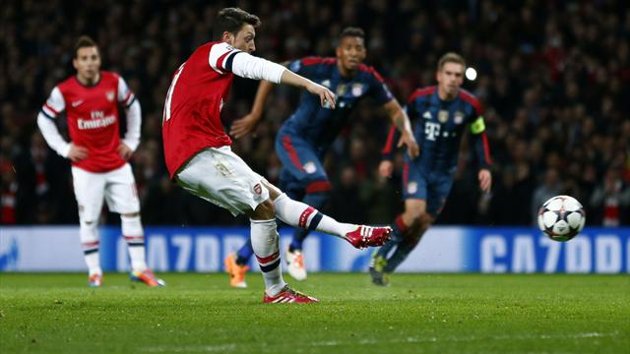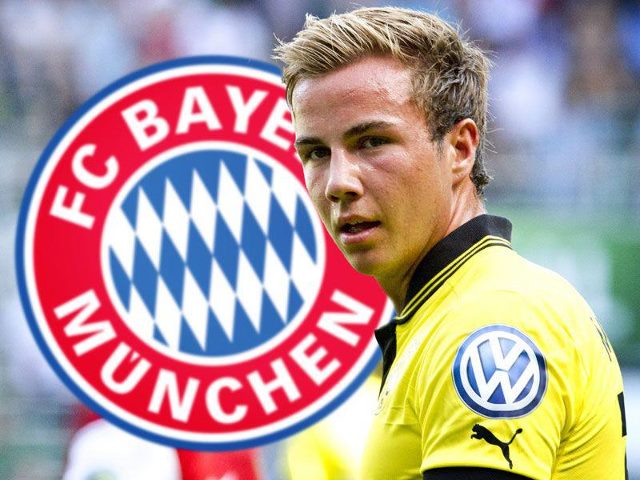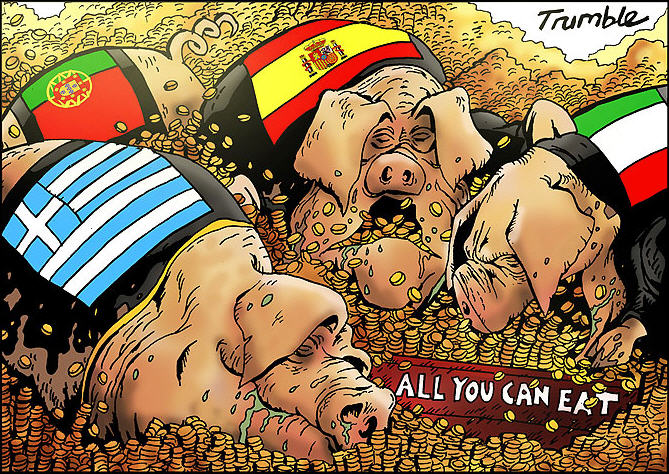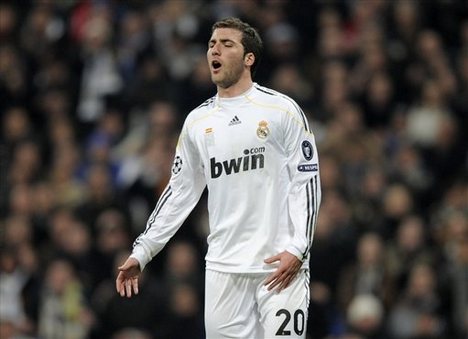Rob 11:17 PM If only...Arsenal weren't so fucked.
main
Champions LeagueEuropePreview
Clash of the Titans II: Real Madrid vs Borussia Dortmund
Well, yesterday’s clash of the titans turned out to be bloodbath. Bayern was favored, but no one saw a 4-0 demolition of Barcelona coming. More on that later in the week..
In the meantime, we’re looking forward to the 2nd semfinal 1st leg later today, another Bundesliga club hosting a Spanish club, with Real Madrid at Borussia Dortmund. A somewhat unusual feature of this matchup is that these squads are quite familiar with each other, as they finished 1-2 in the Goroup of Death in the group stage in the fall. Dortmund unexpectedly finished top of the group, drawing 2-2 at the Bernabeu (a game they probably should have won), and beating (and outclassing) Madrid 2-1 at home.
As yesterday, here’s a few preview links to get you ready for today’s big match:
As usual, if you have time to read only one thing, read Zonal Marking’s tactical preview. Two players to watch, as ZM highlights, are the two opposing young German umlauted star creative midfielders–Madrid’s Mesut Özil and Dortmund’s Mario Götze:
Götze v Özil
Maybe the most interesting battle, however, will be between the number tens. Last year Mesut Özil was outclassed by Toni Kroos at the semi-final stage, because Kroos was more comfortable dropping into deeper positions to allow Bayern to dominate.
They won’t literally be duelling on the pitch, of course – both will be fielded as central attacking playmakers, closely supporting their side’s main striker – but both will be charged with providing creativity from between the lines and leading quick counter-attacks.
Perhaps the style of this contest will suit Özil, but if the match becomes a patient battle of possession, Götze has the opportunity to dominate. Although a playmaker who thrives on space between the lines, and loves dribbling with the ball at speed, he’s also intelligent with his positioning, happy to drop deep into midfield to find space. In the previous round, with Manuel Pellegrini ordering Malaga to sit deep in two banks of four, Götze often retreated to extremely deep positions, behind Dortmund’s holding midfielders, to collect the ball and start attacks. You won’t find Özil doing that.
Götze’s role this week will be fascinating. He unwittingly finds himself at the centre of a very modern tactical debate — next season at Bayern Munich he’s likely to become a false nine, but in this Champions League semifinal tie, will he play as an Özil, or play as a Kroos?
The big surprising news of the week alluded to above is that Götze will be moving to Dortmund’s hated rivals Bayern Munich–the timing of which news that Dortmund’s star manager Jurgen Klopp is understandably unhappy about.
From a profile of Klopp, who, as much as any player, is the public face of this team: “Dortmund want to play football people will remember, says Jürgen Klopp: Talismanic manager has taken the club from uber mediocrity to a:
Dortmund pounced on Klopp when others hesitated. The manager was delighted to join a “football city” (although he later revealed he thought the club’s first contract offer “was a mistake” as it was less than he had earned at Mainz) and started rebuilding the squad. “I have the feeling that I will be able to work with the full support of the club here,” he said in August 2008. “Life is too short to worry about things anyway. I am 0.0% naive. I know how it works by a business. If you don’t do your job properly you lose your job.”
There has not been any chance of Klopp losing his job at Dortmund. Borussia finished sixth in his first season in charge and then fifth in 2010, having sold the club’s two top scorers, Mladen Petric and Alex Frei, in the process. The following season Dortmund won the Bundesliga, seven points ahead of Leverkusen, while still operating on a much smaller budget than most of their rivals. Dortmund had gone from the brink of bankruptcy to winning the league in six years, Kloppo style.
Mats Hummels, a Bayern Munich reject, cost €4m, Robert Lewandowski €4.5m, Neven Subotic likewise, Shinji Kagawa a measly €350,000. Lukas Piszczek arrived on a free while his compatriot Jakub Blaszczykowski joined for a reported fee of €3m. Nuri Sahin, Marcel Schmelzer, Götze and Kevin Grosskreutz all came through the ranks. Since that first league title win, Ilkay Gündogan has signed from Nürnberg for €4m and Marco Reus from Borussia Mönchengladbach for €17.1m.
No wonder Brendan Rodgers said recently that he wants to build Liverpool’s squad “the Dortmund way” (although the way Sahin, now back at Dortmund after a short-lived loan spell at Liverpool “thanked God” he was no longer playing for Rodgers suggests the man at Anfield has some way to go to match Klopp’s man-management skills).
But the Dortmund way is so much more than just scouting and bargain buys. Klopp has his own philosophy of what makes a squad competitive and it is one that sums up the ethos of the city they play in. “There are certain places where you have to conduct yourself and play football in a certain way, where you just can’t be pleased with staying back and hoofing the ball upfield,” he told the German football writer Uli Hesse last year. “There are certain places where, if you do that, people will say: ‘If that is the way you are going to play then I won’t go and watch you.’
“And Dortmund is one of those places. Here people demand that the team should play with the attributes that are closest to my heart: with a lot of feeling and with intensity until the very last minute. We want to play the kind of football people remember.”
Finally, one for the hipsters: SBNation with an essay on “Borussia Dortmund and hipsterdom“.
Euro 2012
Euro 2012 Matchday Three: Big Day for the PIIGS
Yesterday’s Group B (Group of Death) matches were desultory and disappointing. Two 1-0 results–Denmark upsetting the Dutch, and the Germans ultimately dispatching the Portuguese.
On to Group C. Probably the marquee matchup out of all the 1st set of group matches is Italy vs Spain–the I and S in PIGS. No doubt the Italian and Spanish will put aside worries about the Eurozone crisis on this Sunday to focus on the Euro (or maybe not*).
We probably won’t watch Ireland-Croatia (though let’s note that throwing Ireland into the mix yields PIIGS–all of which will have played after today).
| Spain | Italy | |||
| Referee: Viktor Kassai (HUN) – Stadium: Arena Gdansk, Gdansk (POL) | ||||
| Republic of Ireland | Croatia | |||
| Referee: Björn Kuipers (NED) – Stadium: Municipal Stadium Poznan, Poznan (POL) | ||||
And now for your daily roundup of random links and observations:
- Zonal Marking’s analyses of yesterday’s matches:
- Germany 1-0 Portugal: Gomez gets the nod upfront, and nods in the only goal (“This wasn’t a complex match. Portugal started the game playing reactively, Germany were patient in the number of players they pushed forward. Only Özil’s movement, and his battle with Miguel Veloso, provided tactical interest.”)
- Denmark 1-0 Holland: Krohn-Dehli goal provides the first surprise of the tournament (“Denmark didn’t play superbly, and Holland didn’t play badly. This result came down to finishing – Holland created some excellent opportunities, mainly through Sneijder, which were wasted. Denmark’s defence kept a clean sheet, but had van Persie brought his Arsenal form to this match, the Danes would have been criticised for being extremely open without the ball. That said, Denmark adjusted well to the situation. They cooled the tempo, held onto the ball, defended in greater numbers and frustrated Holland. The group of death now looks even deadlier.”)
- Note that in the two analyses ZM makes similar and interesting use of “chalkboards” (match data visualizations created using FourFourTwo’s StatZone app). He looks at data of the two key creative midfielders in these two matches: Wesley Sneijder’s passes received and chances created, and Mesut Özil’s passes received and given. In both writeups he focuses on these two players as the key tactical takeaway of their respective matches.
- However, perennial contrarian @trunchfiddle writes in: “Sneijder didn’t look all that great. He looked more alive when he moved left after the Hunter came on (and Afellay came off). He did have one nice run at goal for a header he would never in a million years finish, and a really great pass to Hunt toward the end of the match, but look at his passes in that article to Afellay – 19 “successful” passes on the left touchline 45 yards from goal. He didn’t split the defense or break anything down that I can rememebr except once. And for 15 minutes before the changes at the 75th minute he looked to be either completely exhausted or just mopping around in the center of the field.”
- Another tactical analysis of the Holland-Denmark match on a Dutch/tactics blog: Holland 0 – 1 Denmark: Dominating chances, but losing the game | 11tegen11
- Harsh words re Portugal from the Guardian’s Richard Williams: Not even Cristiano Ronaldo can inspire this Portugal side
- Worth listening to yesterday’s edition of the @acjimbo-hosted Euro 2012 Football Daily: Denmark and Germany take first blood in group of death. After some in-studio discussion of Netherlands-Denmark (the tagline for Wednesday’s Germany-Netherlands death match: Lviv or Let Die), Raphael @Honigstein calls in from Warsaw to discuss the Germans. (Actually he’s also got a piece up in SI re the other match: Afterwards, there’s an excellent preview of Italy-Spain, with @JamesHorncastle commenting on Prandelli’s tactical dilemma–stick with his preferred 4-3-1-2 or switch to a Juve-style 3-5-2? Devolve to the traditional Italian catennacio, or push ahead with his “new Italy”? For more see this piece on his site: Should Italy play 3-5-2 at Euro 2012? | James Horncastle (“[Prandelli] has sought to replace the tradition of defensive, counter-attacking, opportunistic football with an attractive possession oriented game based around a 4-3-1-2 and a ‘rotating midfield square’ in which players with piedi buoni interchange positions so as not to give their opponents any reference points. It has yielded positive results. Italy held Germany to a draw and beat Spain in friendlies while also qualifying comfortably for Euro 2012.”
So, transitioning to stuff about today’s matches:
- Another one by Michael Cox, this time for ESPN: Three greats together for first time | ESPNFC.com: “In Gdansk on Sunday, the three amigos – Xavi Hernandez, Xabi Alonso and Andrea Pirlo – will be together on the pitch for the first time. Spain’s clash with Italy, the opening game of Group C, will feature the three most prolific passers in European football.”
- Prandelli’s pregame thoughts as quoted in La Gazetta: Prandelli: “Spain are favourites, But we’ll beat the pessimism” | La Gazzetta dello Sport (“Spain? They have a different way of understanding football. We can get there through our play. But the Spaniards seem happier to play football.”)
- Even Spanish football expert Sid Lowe (@SidLowe) takes the Prandelli angle wrt to today’s match: Italy’s Cesare Prandelli ready to spring a surprise
- Ok, a couple things about Ireland-Croatia. A piece about Ireland and their (old-school) Italian manager, Il Trap: Ageless Giovanni Trapattoni gives Republic of Ireland hope
- And another one about Croatia’s manager–this tournament being his swan song, before he heads for colder (but no doubt more lucrative) pastures–in Moscow: Slaven Bilic seeking one last hurrah from Croatia
..and finally a disquieting piece by the Guardian’s chief football writer Daniel Taylor (@dtguardian): Football’s dark side casts ominous shadows on the streets of Krakow
*The Eurozone crisis headlines this morning: “The European Union announced a €100 billion bailout of the Spanish banking system today that could be a watershed moment in the evolution of the eurozone into a more workable system.”
EuropeSpain
¡El Clásico Fantasico!
What started off el clásico predictable turned into a wide-open and exciting affair. Though they were the losing side, Madrid's performance is sure to embolden them on their league return to the Camp Nou.




